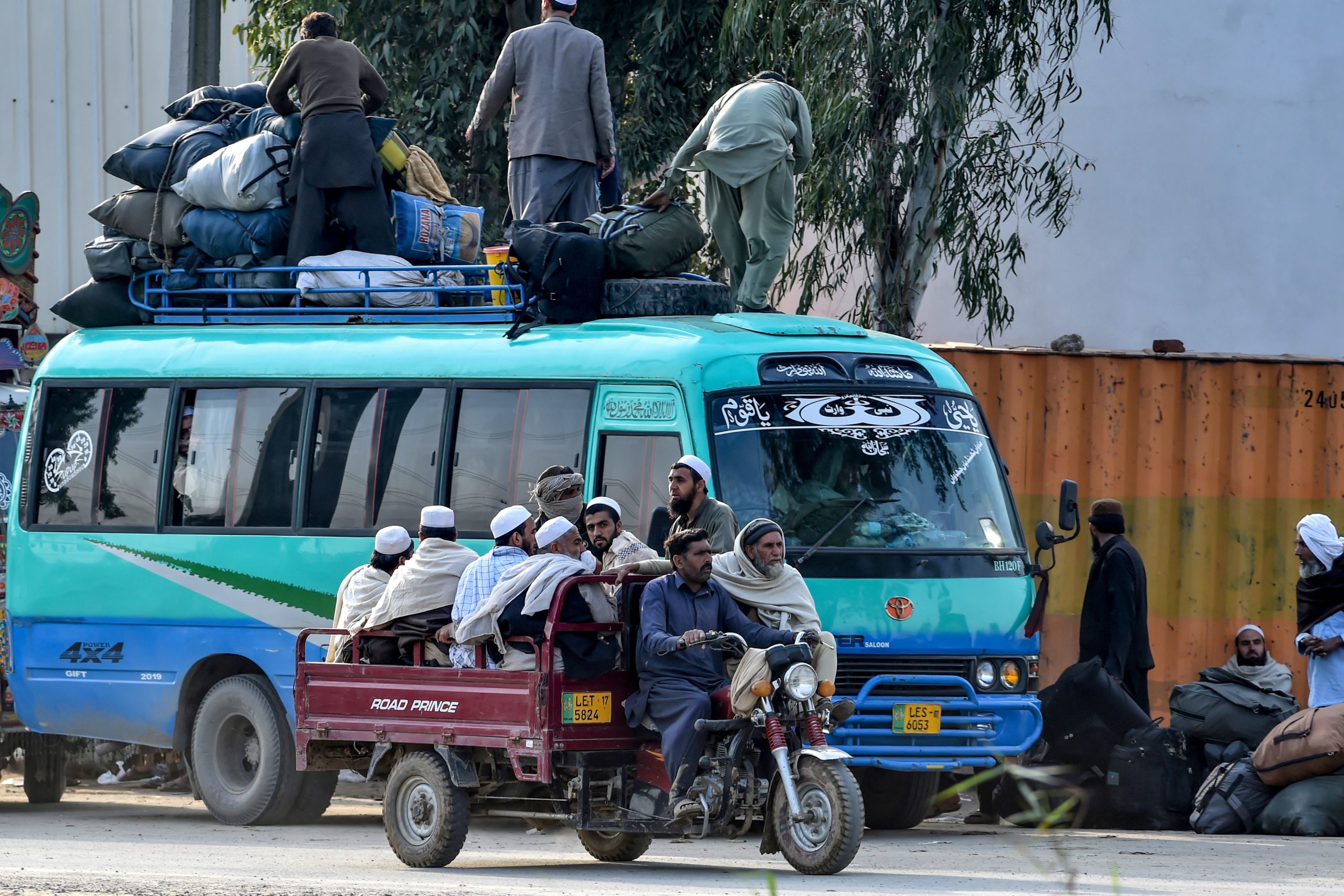Islamic group faces pressure after gatherings raise virus fears
Hundreds of followers of the fundamentalist Tablighi Jamaat have tested positive for COVID-19 since attending congregations last month (Arif ALI)
Islamabad (AFP) – An Islamic missionary movement is at the centre of a growing controversy in South Asia after it repeatedly held massive gatherings despite warnings about the coronavirus.
Hundreds of followers of the fundamentalist Tablighi Jamaat have tested positive for COVID-19 since attending congregations last month, but the group is still sending proselytisers door-to-door — sometimes without observing social distancing guidelines.
The Tablighi movement — which espouses a return to “true” Islam as observed by the Prophet Mohammed — held an event outside Lahore in eastern Pakistan with about 100,000 participants.
Thousands more congregated at separate meetings in India and Malaysia even as the risks of coronavirus infections were evident.
The Delhi health minister Satyendar Jain had described the gathering in India — held at the movement’s global headquarters — as a “grave crime”.
In recent days, authorities in Pakistan and India have launched massive manhunts for attendees, trying to test or quarantine them to slow the spread of COVID-19.
In Pakistan, about 20,000 Tablighis are now in quarantine facilities. More than 600 have tested positive for the coronavirus.
At least 10 people from the Indian gathering have died from COVID-19.
A health ministry official said that of the country’s 4,067 coronavirus cases, some 1,445 were linked to that gathering.
Khurshid Naveed, a member of Pakistan’s official Council of Islamic Ideology, said Tablighi Jamaat faces mounting pressure because of the gatherings and its missionary work.
“They will have to reconsider their policies. Countries like Malaysia had been very sympathetic towards them. But they won’t be in the future,” he said
Around 40 percent of Malaysia’s COVID-19 infections have been linked to the Tablighi event, which was held near the capital Kuala Lumpur.
Along with local Tablighis, the Pakistani, Indian and Malaysian events had participants from other countries too.
Infections in a number of other locations — including Gaza, Indonesia, Cambodia and Brunei — have been linked to the congregations.
– ‘In the hands of Allah’ –
Founded in northern India in 1927, the movement has grown since the death of founder Mohammed Ilyas Kandhlawi in 1944, and has millions of followers.
The group — which follows Sunni Islam — is generally considered apolitical, but its social and cultural influence has grown in recent decades.
Moussa Khedimellah, a French sociologist who specialises in the Tablighis, said adherents — like the pious of many religions — put “their faith before science”.
Jaffar Ahmed, a researcher based in Karachi, said authorities should have done more to stop Tablighi gatherings.
“It could have been prevented by the government,” he told AFP.
“They should have been stopped at their place of arrival. They shouldn’t have been given visas — they are not the kind of people who would have protested.”
This week, a group of five Tablighis knocked on an AFP journalist’s door in Pakistan. Two were not wearing masks, and one offered a handshake.
“Then they told me to come and pray at the nearby mosque,” the journalist said. “They told me that life and death are in the hands of Allah.”
Tablighi preacher Naeem Butt said the Pakistani gathering ended early after authorities raised concerns, though at the time of the March 12 congregation, organisers had blamed rainy weather for the closure.
“We stopped our rally when the authorities asked us,” he said. “The virus is everywhere, so why accuse us.”
Disclaimer: Validity of the above story is for 7 Days from original date of publishing. Source: AFP.


